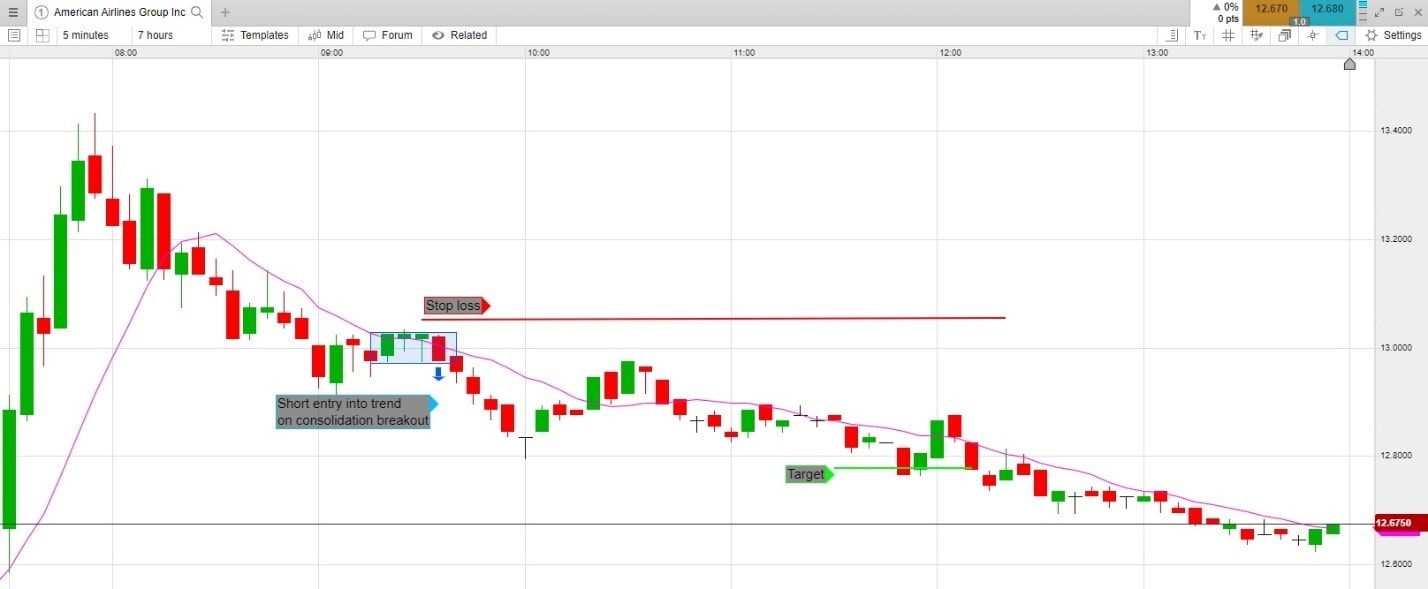Introduction
The National Stock Exchange (NSE) of India offers a plethora of stocks that exhibit high volatility, making them ideal candidates for options trading. These stocks often experience significant price fluctuations, offering traders opportunities for substantial profits. Understanding the dynamics of these volatile stocks is crucial for successful options trading in the Indian market. This comprehensive guide will delve into the world of the most volatile stocks for options trading on NSE, exploring their characteristics, risks, and potential rewards.
/feye051314-5bfc3788c9e77c0051470939.jpg)
Image: www.investopedia.com
Defining Volatility: A Measure of Market Uncertainty
Volatility is a statistical measure that gauges the extent of price fluctuations in a security or market over time. In the context of stock trading, volatility indicates the degree to which a stock’s price moves relative to its peers or the broader market. Highly volatile stocks tend to have greater price swings, making them more unpredictable yet potentially rewarding for options traders.
Benefits and Risks of Options Trading in Volatile Stocks
Options trading involves the buying and selling of contracts that grant the right, but not the obligation, to buy or sell an underlying asset at a specified price within a defined period. Volatile stocks can amplify the potential returns on options trades, as their price swings enhance the delta, the sensitivity of options to underlying price movements.
However, it’s crucial to recognize the elevated risks associated with volatile stock options trading. Rapid price movements can lead to quick losses if not managed cautiously. Therefore, proper risk management techniques, such as stop-loss orders and position sizing, are essential.
Identifying Volatile Stocks on NSE: A Multi-Factor Approach
Identifying volatile stocks on NSE involves a comprehensive analysis of several factors, including:
1. Historical Price Data: Examine historical price charts to identify stocks that have consistently exhibited significant price fluctuations over time.
2. Beta: Beta measures the correlation of a stock’s price movements with the broader market. Stocks with high betas (greater than 1) tend to be more volatile.
3. Implied Volatility: This metric reflects market expectations about future volatility. Higher implied volatility indicates that the market anticipates significant price swings.
4. Earnings Variability: Stocks with high earnings variability are more susceptible to large price moves when earnings are announced.
5. News and Events: Major news events or corporate developments can trigger volatility in specific stocks.

Image: stardolllcoll-jasmin.blogspot.com
NSE’s Top Volatility Giants: Spotlight on Key Stocks
Among the numerous stocks listed on NSE, a few consistently rank among the most volatile, providing ample opportunities for options traders. These include:
1. Tata Motors: India’s largest automaker, Tata Motors, exhibits high volatility due to its exposure to economic cycles.
2. Reliance Industries: A conglomerate with interests in petrochemicals, oil and gas, and telecom, Reliance Industries is renowned for its significant price movements.
3. Infosys: A leading IT services company in India, Infosys’s volatility stems from sensitivity to economic conditions and sector-specific headwinds.
4. HDFC Bank: One of the largest private banks in India, HDFC Bank exhibits volatility influenced by interest rate decisions and macroeconomic factors.
5. Adani Ports: The largest port operator in India, Adani Ports experiences volatility due to its cyclical nature and sensitivity to global trade dynamics.
Trading Strategies for Volatile Stocks on NSE
1. Day Trading: Day traders seek to capitalize on intraday volatility by entering and exiting positions within the same trading day.
2. Swing Trading: Swing traders hold positions for several days or weeks, riding price swings with the potential for larger gains.
3. Long-Term Options Trading: Long-term options strategies, such as covered calls and cash-secured puts, involve holding options contracts for extended periods to capture volatility premium.
Most Volatile Stocks For Options Trading Nse
Conclusion
Venturing into the world of volatile stocks on NSE for options trading can yield significant rewards but also carries substantial risks. By understanding the factors influencing volatility, identifying the most volatile stocks, and employing prudent trading strategies, options traders can maximize their chances of success in this dynamic and potentially lucrative market. It’s essential to approach volatile stock options trading with a disciplined approach, rigorous risk management, and a deep understanding of underlying market dynamics.






